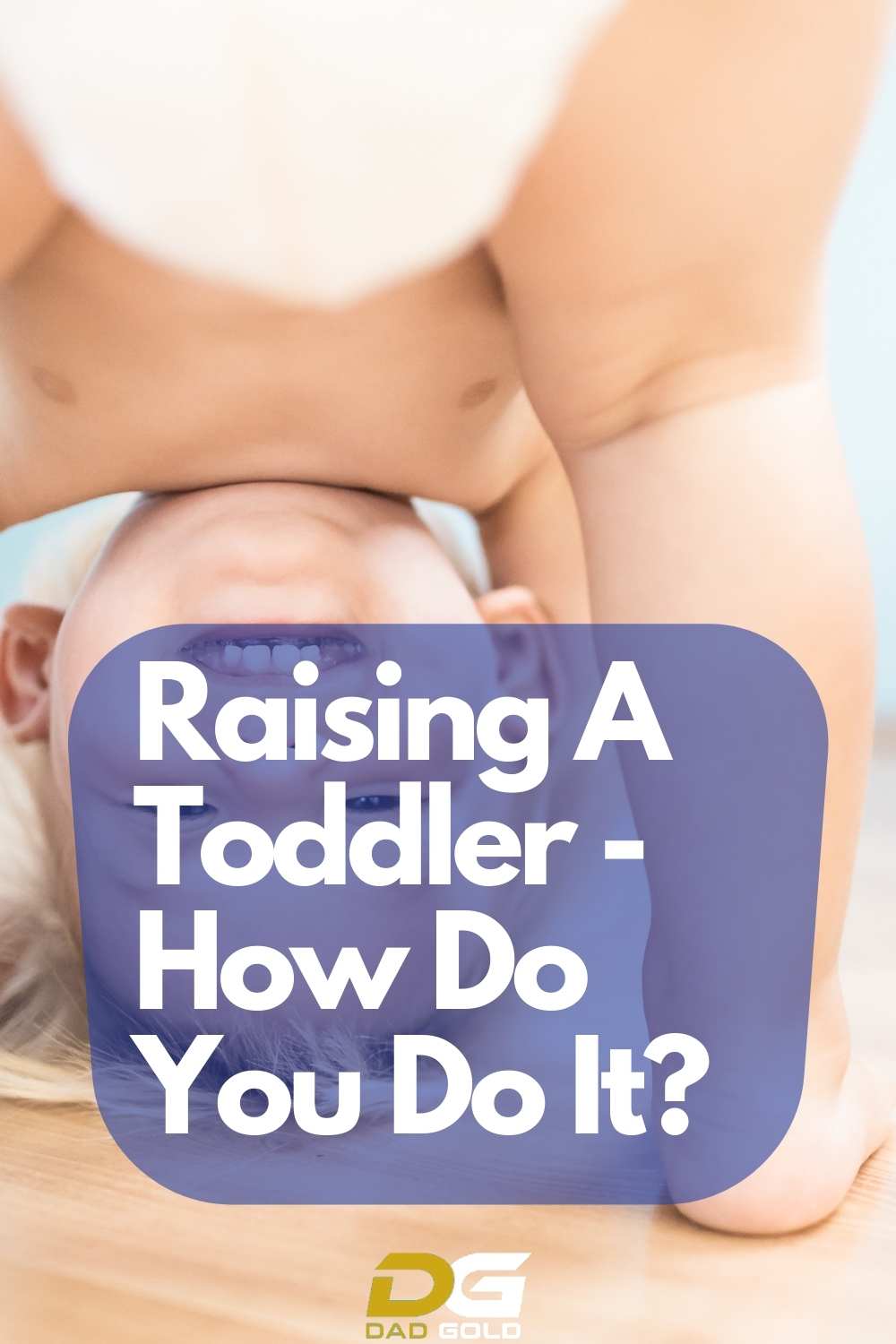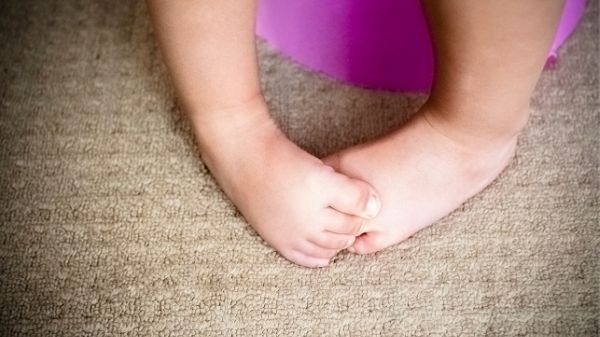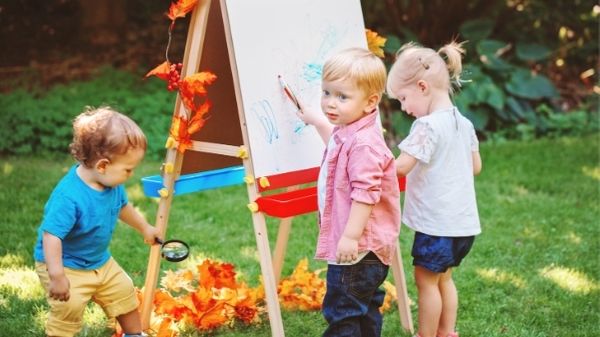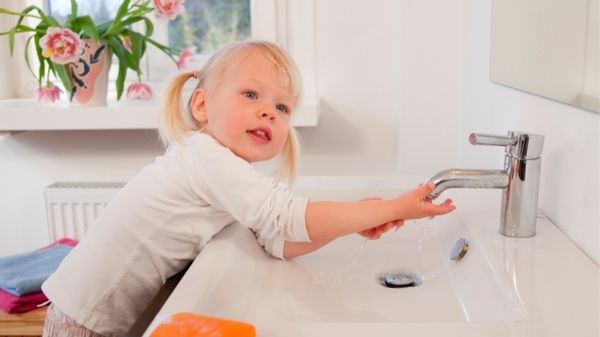Raising children is not rocket science; all it needs is patience, love, compassion, and understanding.
Put yourself in your kid’s shoes, and you will know exactly what he/she needs from you.
Now back to raising your toddler; most of us focus mainly on our toddler’s physical needs paying little attention to their psychological needs.
Both physical and mental health is equally vital for a child’s overall well-being.
Want to know how to raise toddlers? Read on…

The basics of your toddler’s physical health include:
- Nutritious and delicious food
- The right amount of sleep
- Physical activities, preferably outdoors
- Timely immunizations
- A healthy and hygienic living environment
The basics of your toddler’s psychological health include:
- Safe and secure family environment
- Unconditional love and understanding
- Sufficient social interaction
- Cultivating self-confidence and self-reliance
- Proper guidance and discipline
Raising A Toddler – A Learn On The Job Role
Raising a toddler is both tough and awesome… all at the same time.
Your toddler will test your patience, and your feelings of pride and love will keep your emotions lurching from one extreme to the other.
You will go from questioning your life decisions to heart exploding fun in minutes.
Learning from other parents of toddlers is necessary, but you will receive most of your knowledge by being a parent.
Toddlers Dietary Needs

Kids experience several changes through the ages of 1 to 3. From enjoying a diet of milk and bland foods, they slowly find their way to your dining table to join you and explore your menu and eating style. Doctors point out that food preferences are formed early, so you need to help them develop healthier food preferences.
Also, toddlers enjoy smaller servings, and so they will need several servings throughout the day. You can experiment with different varieties of food items so that your little ones get complete nutrition. Introduce more servings of fruits and vegetables to their diet and limit junk food and sweets.
Kids also need healthy servings of eggs, fish, poultry, and lean meat. If you prefer a vegetarian diet for your child, include more protein-rich vegetarian dishes.
Another thing you need to watch out for is allergies. Introduce one new food item a week to check for any food allergy.
A lot of parents fuss about their kids’ eating habits, which is not necessary. Be a little conscious and try to include the different kinds of nutrients to grow a healthy child.
Do not rely on multi-vitamins!
Learning to use the toilet

We, as parents, eagerly look forward to the day when our bundle of joy will learn to do their own thing. It is a day of freedom from the mess and saves us a lot of cash on diapers. No matter how much eager you are, you cannot rush your toddler.
So how do you know when your toddler is ready?
Signs you need to look out for
- Can stay dry for longer periods
- Can walk to the toilet and potty and can sit on it
- Can pull the pants down
- Tells you when he/she needs to go
A baby’s awareness about needing to go develops by the age of one. They can sense the wet feeling and also become aware that the mess is coming out of them. But they still don’t have any control over their bladder and bowel movements. But in a few months, they will alert you when they feel the sensation to go.
Toddlers develop control by the time they are two or two and a half years old. Please don’t force your child before they are ready because it will cause the child to become fearful.
Take it slowly and encourage each development. If potty training isn’t working, take a break and try after a few weeks.
Playmates And Playtime for your toddler

Playing is as essential as food. Playing helps them become more creative, learn self-control and develop problem-solving skills.
When they run, scream and laugh, they have great fun and at the same time evolve physically and mentally.
They need to hang out with their peers.
Hanging out with other toddlers helps them develop a sense of belonging and teaches them to develop relationships with others. They will also learn how to get along with others without throwing tantrums.
You should arrange to play dates with other kids in your neighborhood. You can also find children’s programs at schools or parks for them.
Parents should play with their toddlers.
Parents should also play with their little ones. Playing helps develop a better bond with your toddler. When parents play with their kids, they create a stronger bond. Make sure that the aim is to have fun and not win.
After the game, ask them if they enjoyed the game.
Allow them to have fun and forget about winning.
We live in a high-speed and competitive world where people have forgotten to have fun and enjoy life.
This makes it essential to teach kids the importance of having fun and enjoying themselves instead of focussing excessively on winning.
Having said that, if you have a toddler who is clearly competitive, spend some time teaching them how to act when they win and how to act when they lose.
Hygiene tips for toddlers

- Keep their nails trimmed and short. Do this activity together because kids learn by observing their parent’s habits.
- Get your toddler a small stool so that he/she can get on it to wash their hands on their own
- Teach them how to wash their hands
- Teach them how to wash and rub themselves dry after a bath
- Trim nails short with small, blunt-tipped scissors or clippers.
How to Help Your Toddler Learn to Put Himself to Sleep

We are yet to come across toddlers who love to sleep! They keep going on and on until their bodies drop down out of extreme exhaustion, or at least it seems that way most evenings.
But here is the good news; falling asleep is a habit that all kids learn someday. Some kids fall asleep quickly than others and continue sleeping throughout the night without having the parent around.
Some kids need a little help from their parents to develop the habit and learn to sleep by themselves. Here is how you can help:
1. Start toning down the activities early in the evening
Kids run around their homes the entire day doing all sorts of things. You can’t expect them to fall asleep as soon as you switch off the lights. What you can do is help them calm down and engage in more peaceful activities a few hours before bedtime.
2. Develop a daily nighttime routine and try to follow it every night
You aim to create a safe and tranquil environment. You could develop a nighttime ritual such as having dinner, taking a warm shower, telling stories, turning off the lights, and tuck-in.
Make the ritual creative and interesting so that your little one eagerly looks forward to it every night. But make sure not to keep it too elaborate because it might become a tedious chore for you and your kids.
3. Help your kids develop a biological clock
You need to set a time for your child to go to bed so that their bodies begin to expect sleep right around that time. Most toddlers do well with an early bedtime between 7.30 pm to 8.00 pm. If kids stay up late, their bodies produce more adrenaline and cortisol, which will cause them to wake up more at night.
4. Don’t reduce daytime naps too early
Sleep needs and sleep behavior differs from child to child. But most toddlers take naps during the day and don’t easily give up on this habit until they are 3 or 4. But if you cut down on the daytime naps too early, it will make them cranky, making nighttime sleep more challenging.
Managing Your Toddler’s TANTRUMS!

1. Stay calm and centered
When your toddler throws tantrums, you can’t expect him/her self-regulate their mood. This is because their brain is not developed enough to soothe their emotions.
So when your child loses grounding and feels overwhelmed, the right thing to do is calm yourself and connect with them.
2. Relax and let go
There is no other solution. If you react or even try to talk them out of it, the situation will escalate. Just be there with them and wait for them to vent it all out. Once that is over, you can talk with them about how they acted and improve it in the future.
3. Take preventive measures
Most tantrums occur when the child feels unwell, drained out, hungry, emotionally low, or seeking warmth and care. Ensure that your child is fed, gets enough rest and quiet time, and is not exposed to too much media stimulation.
All of these prevent tantrums. If you feel that your toddler is feeling low, give them the attention they need.
4. Give them enough love, attention, and care
When toddlers feel needy, throwing tantrums is what comes to them naturally. If you have been away all day, make an effort to connect with them before bed.
Doctor visits

Continue visiting the doctor for vaccinations and easing parenting worries. Kids are a little apprehensive about doctor visits.
You can help them by explaining why visiting the doctor is necessary. You can get a toy doctor set and play doctor to familiarise them with what to expect during regular check-ups.
Also, remember that doctors are there to help and reassure. If you think you need to speak to a doctor about your toddler, go and speak with one.
Wrapping Up
Raising a toddler will run you through a gamut of emotions, but the fun you will have raising them is limitless!
Take advantage of this time. A time when your toddler wants to spend a lot of time with you. Sometimes it can feel a little too much… but I guarantee in 10 years you will wish for this time back.
The time to address future regrets is now. So spend time with your toddler while you can! That is the way I see life, and it has served me well so far.
Good luck!







